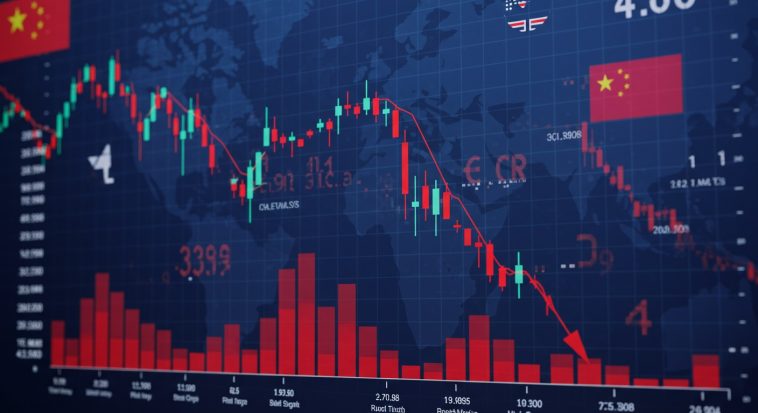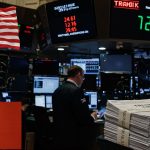The stock market continues to navigate turbulent waters as Trump tariff policies create significant economic uncertainty across major sectors. Last week’s market performance showed concerning trends, with the S&P 500 dropping 1.5% and both the Nasdaq Composite and Dow Jones Industrial Average experiencing sharper declines of approximately 2.6% during the four-day trading period.
Trump Tariff Policies Dominating Market Sentiment
Trump tariff measures remain the primary driver behind current market volatility. The initial optimism following the April 9th announcement of a 90-day pause on reciprocal tariffs has given way to renewed concerns as the policy landscape becomes increasingly complex. Investors are particularly focused on how these Trump tariff implementations will affect major corporations and the broader economic outlook.
The impact became starkly evident when Nvidia revealed that new U.S. government restrictions on chip exports to China would result in $5.5 billion in charges, triggering a significant market selloff. This reaction underscores how Trump tariff policies are creating ripple effects throughout the technology sector and beyond.
Corporate Earnings Under Pressure from Trump Tariff Uncertainty
As earnings season progresses, investors are closely monitoring quarterly reports for insights into how companies are managing Trump tariff challenges. Over 120 S&P 500 companies are scheduled to release results in the coming week, including tech giants Alphabet and Tesla, alongside Chipotle, Boeing, and Verizon.
Early earnings data paints a concerning picture, with FactSet reporting that only 71% of S&P 500 companies have exceeded analyst expectations—below the five-year average of 77%. Moreover, the margin by which companies are beating projections has narrowed to 6.1%, compared to the typical 8.8%.
Economic Indicators and Trump Tariff Implications
Federal Reserve Chair Jerome Powell’s recent statement that the central bank would wait for “greater clarity” before adjusting interest rates has heightened market anxiety. This cautious approach suggests that even monetary policymakers are struggling to assess the full implications of Trump tariff policies on economic growth.
“What this comes down to is this continued level of uncertainty in the markets,” explained Sylvia Jablonski, CEO of Defiance ETFs. Many strategic analysts believe the next few weeks will be crucial in determining market direction through the summer months, with particular attention on any developments related to Trump tariff negotiations with key trading partners.
Investment Strategy Shifts in Response to Trump Tariff Concerns
The ongoing Trump tariff situation has prompted strategic reconsideration among investment professionals. Keith Lerner of Truist has downgraded his view on U.S. equities from Neutral to “less attractive,” effectively suggesting investors might consider reducing their allocation to U.S. stocks.
This recommendation stems partly from a weakening economic growth outlook, with projections for U.S. gross domestic product (GDP) declining throughout 2025. The Trump tariff escalation has further amplified recession fears, raising questions about whether consensus growth expectations have adequately adjusted to reflect current realities.
Market Performance and Tech Sector Challenges
The “Magnificent Seven” tech stocks that propelled market gains in 2023 and 2024 are showing signs of vulnerability in the face of Trump tariff uncertainties. Alphabet shares have declined nearly 20% since the beginning of 2025, while Tesla has experienced a more dramatic drop exceeding 40%.
Despite recent volatility, the S&P 500 remains approximately 6% above its lowest close of the year on April 8. However, many Wall Street strategists lack confidence in a near-term market recovery, citing concerns about how Trump tariff policies may impact corporate profitability and economic resilience.
“I’m not sure the stock market has quite processed the probability of a recession,” noted Callie Cox, chief markets strategist at Ritholtz Wealth Management, highlighting the ongoing challenge of quantifying Trump tariff effects on economic stability.



